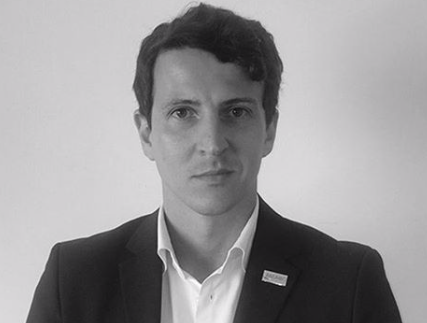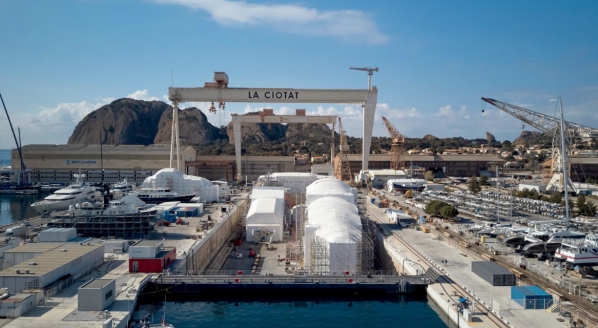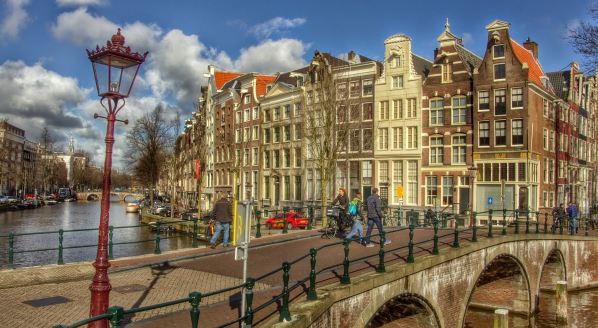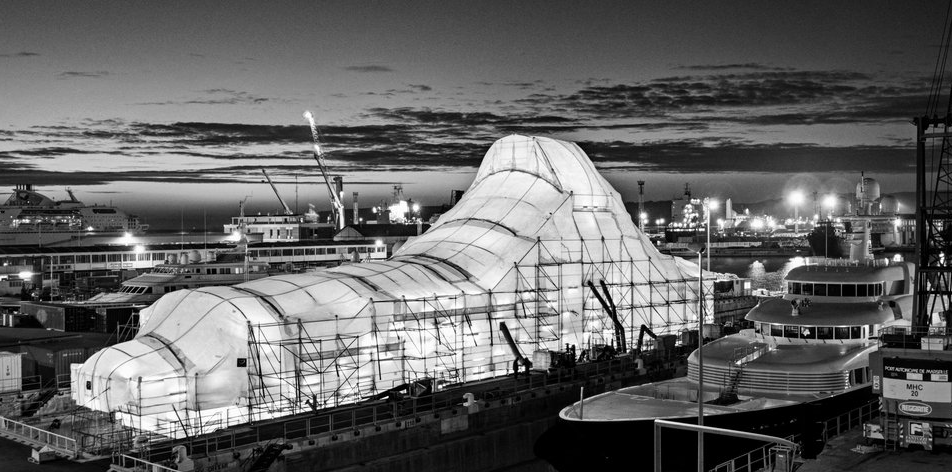Can we really clean up our act?
An exclusive conversation with Marzio Rucconi, General Sales Manager at Palumbo…
One of the most frequently spoken words at The Superyacht Forum 2019, coming a close second to the phrase ‘Next generation’, was ‘sustainability’. With this in mind, we invited a panel of experts that work within the industry to discuss what changes need to be made to reduce our collective ecological impact in a workshop named ‘Can we really clean up our act?’ Following the forum, SuperyachtNews sat down with one of the panellists to further discuss their thoughts on the matter.
 Marzio Rucconi, General Sales Manager at Palumbo
Marzio Rucconi, General Sales Manager at Palumbo
Marzio Rucconi started his refit career in 2013 working as a junior project manager for Amico& Co., immediately after completing his degree in naval architecture, during which he designed a preliminary plan for a vessel that can run on solar panels as part of his dissertation. Following that, he spent two years working at CRN before joining Palumbo as the General Sales Manager of its refit department at the beginning of 2019. “The responsibility comes from all of us”, he explains. “As a shipyard we need to investigate our consumption during the refit process, while also educating clients on the benefits of making their vessel more environmentally friendly. Owners also need to have faith in us too - that we are not simply trying to rip them off.”
Rucconi expresses his concern over the industry’s fixation with cost, with the pressure to drive prices down impinging upon a yard’s ability to educate the client on efficient or environmentally-sensitive solutions. “We can only guide the client as much as we can; in my experience I have found only a small amount of refit requests to be environmentally focused”, he says.
Regulations are already in place, however, to monitor the ecological effect of a refit project. “From a technical and legal perspective” explains Rucconi, “they can be quite demanding. We are responsible for anything poured into the water, to give an example, so when washing off anti-fouling the excess water must be collected in a specific chamber where it is filtered and samples are taken of the water poured back into the ocean.”
Despite this though, Rucconi worries theirs is little in the way of preventative steps taken to pre-empt environmental regulations. “With the IMO Tier III coming into place in 2020, we have received little interest in making changes. The problem with regulations is that they can be postponed - we need to show owners that there are simple solutions that can have a huge effect. I am still seeing yachts fitted with normal catalytic converters that you would find on a car.”
While historically being a peripheral concern for our industry, Rucconi remains positive that the superyacht market is waking up to the need for change. “While clients may currently have other demands we, as the shipyard, have a responsibility to inform them of the benefits of making positive changes.”
Profile links
NEW: Sign up for SuperyachtNewsweek!
Get the latest weekly news, in-depth reports, intelligence, and strategic insights, delivered directly from The Superyacht Group's editors and market analysts.
Stay at the forefront of the superyacht industry with SuperyachtNewsweek
Click here to become part of The Superyacht Group community, and join us in our mission to make this industry accessible to all, and prosperous for the long-term. We are offering access to the superyacht industry’s most comprehensive and longstanding archive of business-critical information, as well as a comprehensive, real-time superyacht fleet database, for just £10 per month, because we are One Industry with One Mission. Sign up here.
Related news

Refitting the next generation
An interactive discussion on how requirements for refit infrastructure are changing will take place at TSF
Business

Walking the walk
The Superyacht Forum promises lively discussions on the topic of sustainability, but what steps are we already taking to minimise our impact on the environment?
Owner
.jpg)
The future of ownership
SeaNet Europe has announced that it has added another superyacht to its co-ownership fleet
Owner
Related news
Refitting the next generation
5 years ago
Walking the walk
5 years ago
The future of ownership
5 years ago
NEW: Sign up for
SuperyachtNewsweek!
Get the latest weekly news, in-depth reports, intelligence, and strategic insights, delivered directly from The Superyacht Group's editors and market analysts.
Stay at the forefront of the superyacht industry with SuperyachtNewsweek




